Explore consonant digraphs at the beginning and end of words with these hands-on peg cards.
Two Letters, One Sound… That’s the Consonant Digraph!
Let’s start with the tricky terminology! In the world of phonics, a digraph is a two-letter combination that creates one sound. The English language consists of both consonant digraphs and vowel digraphs. Consonant digraphs can be found at the beginning or the end of a word (or anywhere in between), depending on the sound they make.
This set of clip cards has been designed to help your students become more familiar with consonant digraphs in monosyllabic words. The resource includes 16 peg cards and explores the following consonant digraphs: ck, ch, th, sh, ph, wh. Directions and an answer key are also provided.
How to Use This Consonant Digraphs Activity
- Print and cut out every card. Thick card is recommended.
- Provide students with a set of cards and some clothes pegs.
- Clip a clothes peg on the correct digraph that the word begins or ends with.
Cards are colour coordinated. Yellow boxes represent words that have a missing ending consonant digraph. Green boxes represent words that have a missing beginning consonant digraph.
Adapt the Application to Best Meet Your Students’ Needs
This versatile literacy resource can be used in a variety of ways to meet the diverse needs of your learners. It can be used as:
- an independent challenge for fast finishers
- a focused, small group activity with a selection of targeted learners
- a whole-class lesson or revision.
Download the File Format That Best Suits Your Classroom!
Use the dropdown menu next to the Download button to select from the PDF or Google Slides version of this resource.
This resource was created by Lisamarie Del Valle, a Teach Starter collaborator.
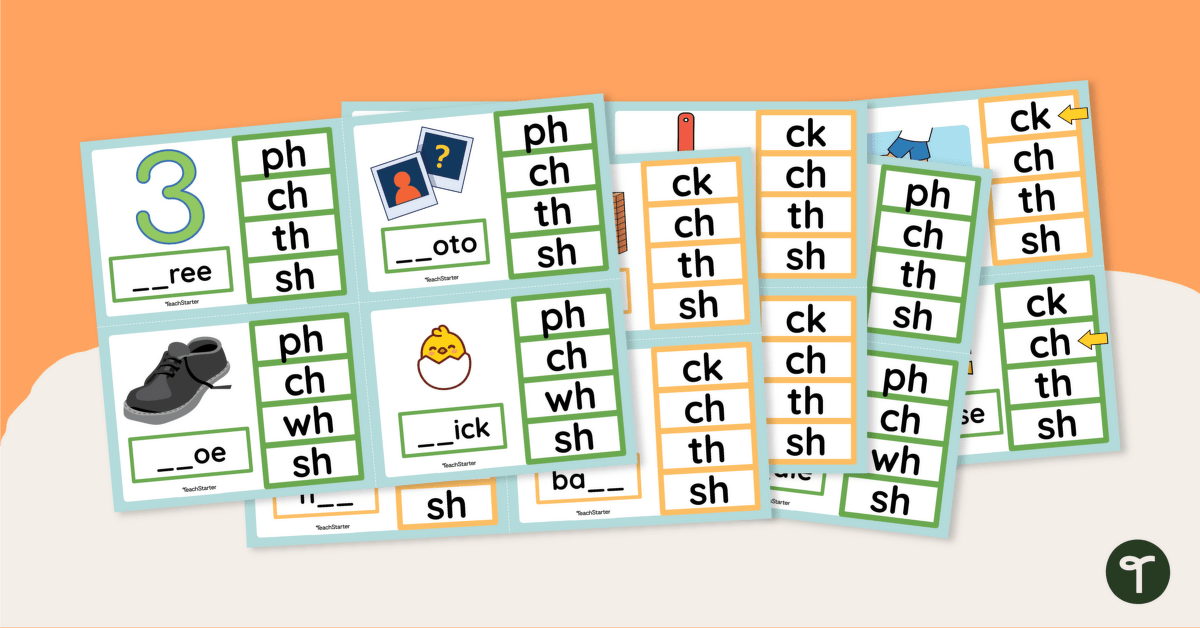

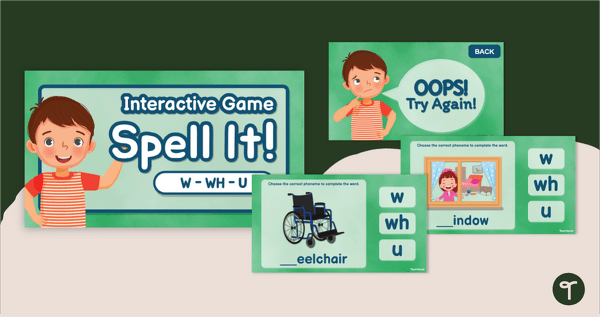
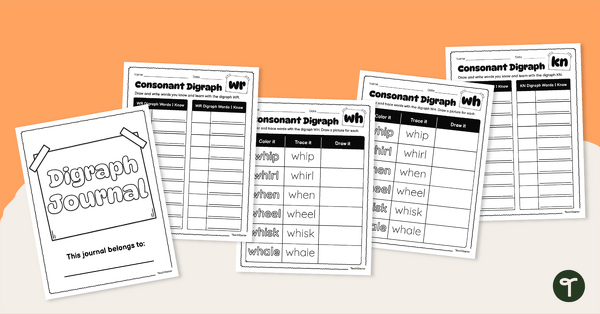
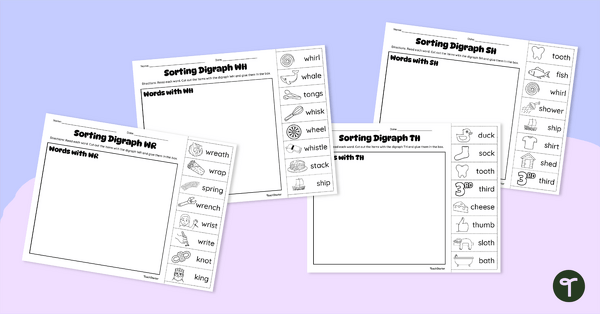
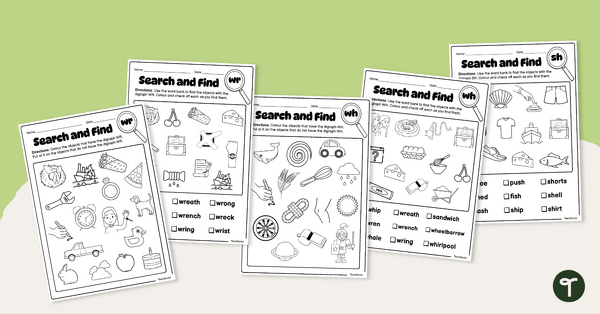
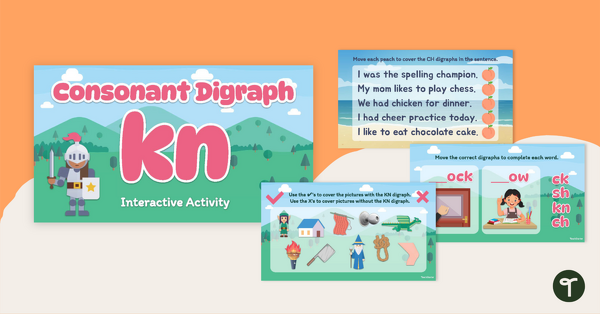
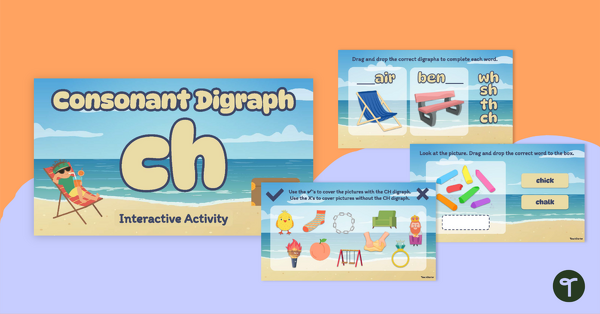
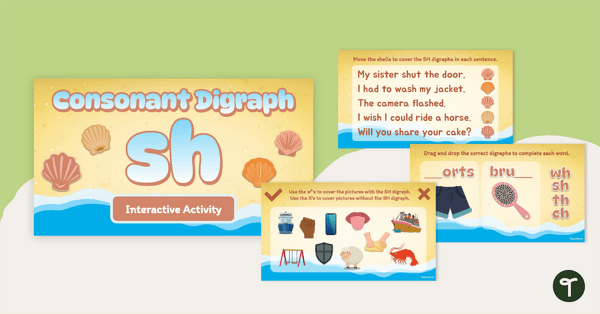
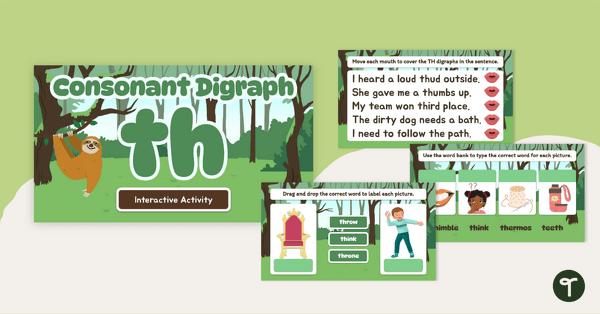
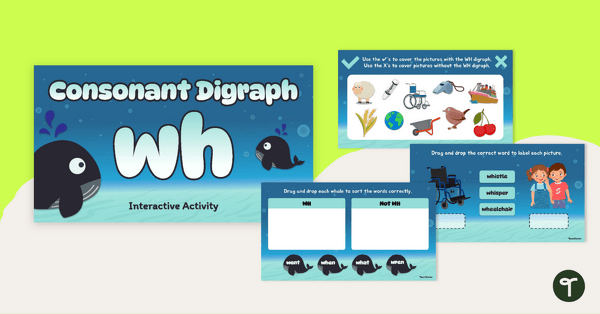
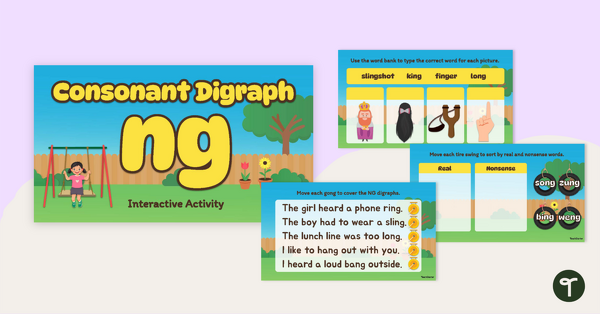
0 Comments
Write a review to help other teachers and parents like yourself. If you'd like to request a change to this resource, or report an error, select the corresponding tab above.